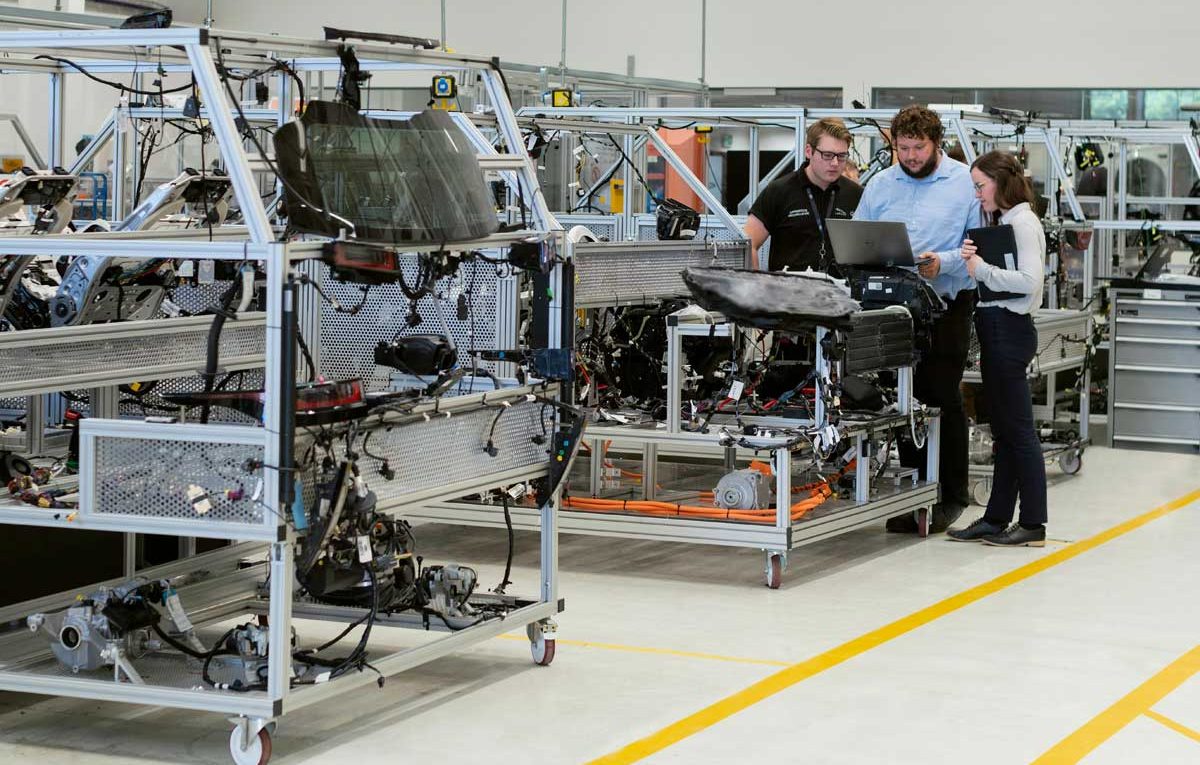Professional career in Europe? Build your CV in Germany
Have you thought about a professional career in another country, for example, in a country that belongs to the European Union, in the country with the strongest economy in Europe—Germany? Now, everyone has that opportunity. The European Union is doing a lot to ensure that Europeans can also work in other EU countries. Additionally, regulations have been introduced to support individuals from non-EU countries, provided they have sought-after professional qualifications.
This is a great opportunity for engineers from South Korea to secure well-paid positions, including in Germany. Europe, and especially Germany—the most industrialized country on the old continent – is struggling with a shortage of skilled workers, which is why specialists are being sought from outside the European Union.
CV in German
A strong CV and the necessary qualifications, such as fluency in English, allow for joining often international teams in German companies. To maintain a high professional status and continue to grow, learning German is essential. Often, employers provide free German language courses, so it is worth developing and mastering a new language—after all, it’s a new skill to add to your CV. Your next CV could even be written in German. How to write a CV in German – tips and ready-made examples.
Perhaps you will choose another country to work in
The European Union (EU) is one of the world’s largest economies, comprised of 27 member states that collectively form a single market. This market presents not only economic advantages but also a vast array of employment opportunities. While the EU’s primary goal is to ensure the free movement of goods, services, and people within its borders, it also opens doors for individuals from outside the EU, providing them with significant employment prospects. The European Union is, in essence, a grand job market, attracting talent from all over the globe.
A Diverse and Expansive Job Market
One of the most appealing features of the EU job market is its diversity. The EU consists of countries with varying economic strengths, cultural backgrounds, and labor demands. Countries such as Germany, France, and the Netherlands are known for their industrial, technological, and financial sectors, offering a wide range of employment opportunities. Meanwhile, nations like Spain, Italy, and Greece have growing tourism and service sectors, which frequently need workers, especially in peak seasons.
This diversity means that the EU offers opportunities in a broad range of sectors, from information technology and engineering to healthcare, construction, and agriculture. Many industries face skill shortages, creating demand for workers from outside the EU who bring valuable expertise and fresh perspectives.
The Demand for Skilled Workers
The EU has experienced a growing need for skilled labor in recent years. Aging populations in many member states, coupled with rapid technological advancements, have led to labor shortages in sectors such as healthcare, engineering, and IT. The European Commission has acknowledged this gap and has actively encouraged the attraction of highly skilled professionals from non-EU countries through initiatives like the EU Blue Card. The Blue Card scheme allows qualified individuals from outside the EU to live and work in member states, providing a pathway for skilled workers in areas such as science, technology, and medicine to contribute to the European economy.
The tech sector, for example, is particularly vibrant, with demand for software engineers, data scientists, and cybersecurity experts far exceeding the supply available within the EU. Countries like Germany, Sweden, and Ireland are among those actively recruiting professionals from non-EU countries to meet these demands.
Opportunities for Low-Skilled Workers
In addition to the need for highly skilled labor, many EU countries rely on workers from non-EU nations to fill lower-skilled positions, especially in agriculture, hospitality, and seasonal work. These industries often face challenges in attracting local workers, making non-EU labor essential. Countries like Spain and Italy, for example, depend heavily on foreign workers during harvest seasons, while Poland and the Czech Republic have become popular destinations for non-EU workers in construction and manufacturing.
For those seeking short-term employment opportunities, many EU countries have introduced visa schemes that allow non-EU citizens to work temporarily, particularly in sectors where there are acute labor shortages. This not only benefits the workers, who gain valuable international experience, but also the economies of the host countries, which depend on this labor to keep their industries running smoothly.
Challenges and Barriers
Despite the vast opportunities available, non-EU citizens looking to work in the EU often face challenges. Immigration policies vary from country to country, and securing work permits or visas can sometimes be a lengthy and complex process. Additionally, language barriers, recognition of qualifications, and integration into the local culture can be hurdles for non-EU workers. Check – https://immigration-portal.ec.europa.eu/index_en
Nevertheless, the EU has been actively working to streamline processes for skilled workers through initiatives like the Blue Card and other visa programs. Many member states have also introduced language courses, qualification recognition programs, and integration support services to help non-EU workers adapt more easily to life and work in the EU.

